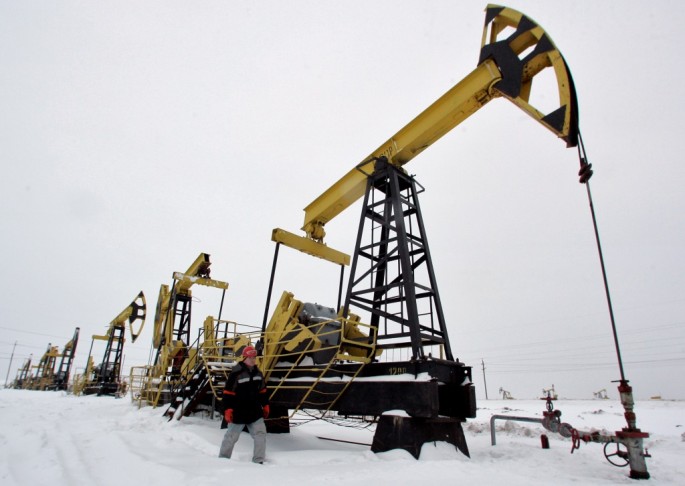China National Petroleum Corporation (CNPC), the country's biggest oil and gas producer, is looking to collaborate in Arctic oil and gas exploration, the state-owned Xinhua News Agency reported Tuesday, quoting a senior company official.
"International cooperation is needed in the Arctic oil and gas exploitation and CNPC could join in with its advantages," Sun Xiansheng, head of CNPC Economics & Technology Research Institute, said in a conference in Norway, according to Xinhua.
"CNPC has the capability for resource development in the Arctic and has established a cooperative relationship with a Russian corporation."
The CNPC has collaborated with Russia in oil and gas exploration projects in recent years. In 2013, Chinese President Xi Jinping signed a historic agreement with Russian President Vladimir Putin that partnered CNPC with Russia's state-owned oil company Rosneft in exploring three offshore Arctic areas for oil, the first time that Russia has entered such an agreement with an Asian company.
In the same year, the CNPC had a framework agreement with Novateck, Russia's second largest natural gas (LNG) producer, for a 20-percent stake in their LNG project in the country's northern Yamal peninsula.
"China is emerging as the most important buyer of Russian oil and gas, helping Russian companies diverge from European exports," said Tony Regan, an energy consultant with Singapore-based advisory firm Tri-Zen International Inc. "It's also a huge catalyst for Russian companies to develop their oil and gas fields."
The Arctic region is known for having some of the world's largest oil reserves, which may account for 30 percent of the planet's undiscovered natural gas reserves and 13 percent of the undiscovered oil, according to data from the U.S. Geological Survey. Most of these reserves can be found within Russian territory.
These untapped oil reserves have attracted huge interest from investors around the world, so it is not surprising that CNPC also expresses interest, Lin Boqiang, an energy expert from Xiamen University, said in an interview on Tuesday.
However, Lin also pointed out that the CNPC will face tough challenges, particularly since Arctic oil production is still in its infant stages. The country also has limited technical expertise in polar navigation necessary for drilling and transporting oil from the Arctic, according to a report from the U.S.-China Economic and Security Review Commission in 2012.
But despite these limitations, Chinese companies still have an advantage in terms of exploration technology over its other competitors in the region, particularly in Japan and South Korea, in opening Arctic shipping lanes, Yu Qing, a senior energy analyst with Shanghai-based CBI Research Center, said on Tuesday.
According to data from the U.S. Energy Information Administration, China is the world's second-largest consumer of petroleum and one its largest net importers.
"China's total oil and liquids production, the fourth-largest in the world, has risen by about 54 percent over the past two decades and serves only its domestic market. However, the production growth has not kept pace with demand growth during this period," the U.S. Energy Information Administration said in a report.



























